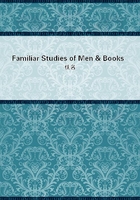
第5章
The spirit of Villon is still living in the literature of France. Fat Peg is oddly of a piece with the work of Zola, the Goncourts, and the infinitely greater Flaubert; and, while similar in ugliness, still surpasses them in native power. The old author, breaking with an ECLAT DE VOIX, out of his tongue-tied century, has not yet been touched on his own ground, and still gives us the most vivid and shocking impression of reality. Even if that were not worth doing at all, it would be worth doing as well as he has done it; for the pleasure we take in the author's skill repays us, or at least reconciles us to the baseness of his attitude. Fat Peg (LA GROSSE MARGOT) is typical of much; it is a piece of experience that has nowhere else been rendered into literature; and a kind of gratitude for the author's plainness mingles, as we read, with the nausea proper to the business. I shall quote here a verse of an old students' song, worth laying side by side with Villon's startling ballade. This singer, also, had an unworthy mistress, but he did not choose to share the wages of dishonour; and it is thus, with both wit and pathos, that he laments her fall:-Nunc plango florem AEtatis tenerae Nitidiorem Veneris sidere:
Tunc columbinam Mentis dulcedinem, Nunc serpentinam Amaritudinem.
Verbo rogantes Removes ostio, Munera dantes Foves cubiculo, Illos abire praecipis A quibus nihil accipis, Caecos claudosque recipis, Viros illustres decipis Cum melle venenosa. (1)
(1) GAUDEAMUS: CARMINA VAGORUM SELECTA. Leipsic. Trubner.
1879.
But our illustrious writer of ballades it was unnecessary to deceive; it was the flight of beauty alone, not that of honesty or honour, that he lamented in his song; and the nameless mediaeval vagabond has the best of the comparison.
There is now a Villon Society in England; and Mr. John Payne has translated him entirely into English, a task of unusual difficulty. I regret to find that Mr. Payne and I are not always at one as to the author's meaning; in such cases I am bound to suppose that he is in the right, although the weakness of the flesh withholds me from anything beyond a formal submission. He is now upon a larger venture, promising us at last that complete Arabian Nights to which we have all so long looked forward.
CHARLES OF ORLEANS. - Perhaps I have done scanty justice to the charm of the old Duke's verses, and certainly he is too much treated as a fool. The period is not sufficiently remembered. What that period was, to what a blank of imbecility the human mind had fallen, can only be known to those who have waded in the chronicles. Excepting Comines and La Salle and Villon, I have read no author who did not appal me by his torpor; and even the trial of Joan of Arc, conducted as it was by chosen clerks, bears witness to a dreary, sterile folly, - a twilight of the mind peopled with childish phantoms. In relation to his contemporaries, Charles seems quite a lively character.
It remains for me to acknowledge the kindness of Mr. Henry Pyne, who, immediately on the appearance of the study, sent me his edition of the Debate between the Heralds: a courtesy from the expert to the amateur only too uncommon in these days.
KNOX. - Knox, the second in order of interest among the reformers, lies dead and buried in the works of the learned and unreadable M'Crie. It remains for some one to break the tomb and bring him forth, alive again and breathing, in a human book. With the best intentions in the world, I have only added two more flagstones, ponderous like their predecessors, to the mass of obstruction that buries the reformer from the world; I have touched him in my turn with that "mace of death," which Carlyle has attributed to Dryasdust; and my two dull papers are, in the matter of dulness, worthy additions to the labours of M'Crie. Yet I believe they are worth reprinting in the interest of the next biographer of Knox. I trust his book may be a masterpiece; and I indulge the hope that my two studies may lend him a hint or perhaps spare him a delay in its composition.
Of the PEPYS I can say nothing; for it has been too recently through my hands; and I still retain some of the heat of composition. Yet it may serve as a text for the last remark I have to offer. To Pepys I think I have been amply just; to the others, to Burns, Thoreau, Whitman, Charles of Orleans, even Villon, I have found myself in the retrospect ever too grudging of praise, ever too disrespectful in manner. It is not easy to see why I should have been most liberal to the man of least pretensions. Perhaps some cowardice withheld me from the proper warmth of tone; perhaps it is easier to be just to those nearer us in rank of mind. Such at least is the fact, which other critics may explain. For these were all men whom, for one reason or another, I loved; or when I did not love the men, my love was the greater to their books.
I had read them and lived with them; for months they were continually in my thoughts; I seemed to rejoice in their joys and to sorrow with them in their griefs; and behold, when I came to write of them, my tone was sometimes hardly courteous and seldom wholly just.
R. L. S.